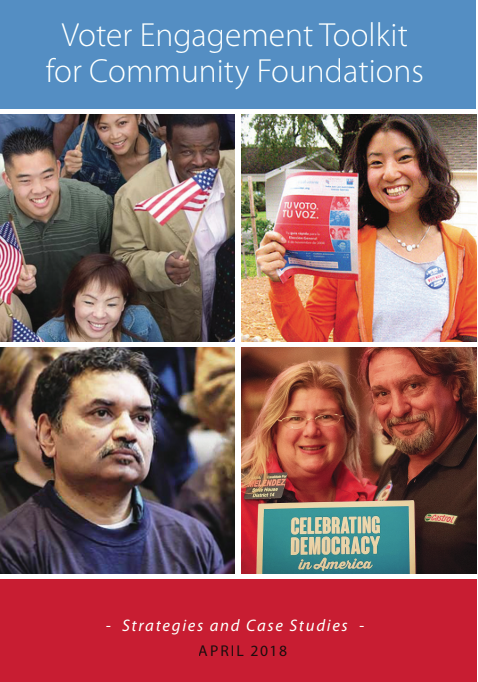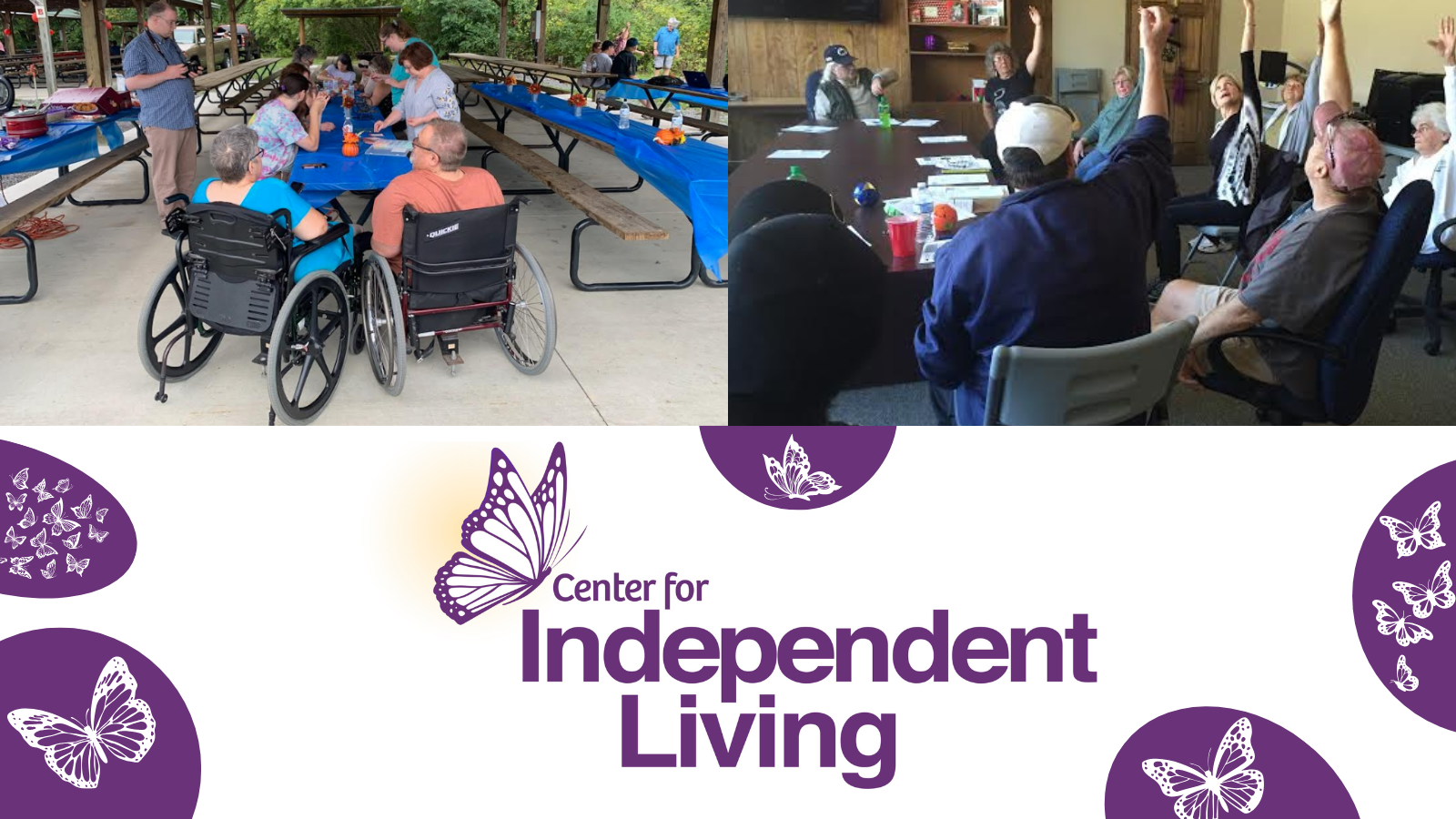The following is an excerpt from the Voter Engagment Toolkit for Community Foundations.
CLICK TOOLKIT COVER TO DOWNLOAD
 |
 |
Foundations and nonprofits are well positioned to increase voter and civic participation within the communities they serve. They’re trusted messengers, deeply rooted in local communities and invested for the long term. Increasing participation fits well into the social missions and goals of philanthropic organizations.
There is strong data backing up the effectiveness of nonprofits doing nonpartisan voter engagement with the communities they serve. Studies like Engaging New Voters report show that nonprofits reach populations most likely to be overlooked by partisan campaigns and have a markedly positive impact on voter turnout with those they engage. Further, because nonprofits and community foundations are part of their communities’ fabric, their impact builds over time.
The new foundation toolkits (published by Council on Foundations, Independent Sector and Nonprofit VOTE) lift up concrete ideas and examples for community and public foundations to encourage voter engagement among their grantees and networks. Strategies range from communications, resource sharing, and nonprofit trainings to integration into programs and grantmaking or donor and grantee education.
Voter engagement is not another program but rather a valuable tool in a broader set of strategies to build healthy communities, give voice across all neighborhoods, and increase the impact and effectiveness of grantees to achieve their goals.
Elections provide a unique educational and engagement opportunity. They’re a chance to connect differently with the people you serve, focusing on their role as citizens and voters. An election season is a window of opportunity to talk about issues with candidates and future elected officials at a point when they’re often more accessible and more apt to listen.
For example: In 2016, the Community Foundation for Greater Atlanta responded when the state legislature added two constitutional amendments to the statewide ballot related to children and relevant to communities it served. The foundation hosted a training to help nonprofits understand their ability to take a position or provide neutral public education. One grantee, Meals on Wheels Atlanta, used it as a chance to engage its clients as active citizens in a civic conversation about the measure and voting.
Seven community foundations in Texas are members of the Texas Education Grantmakers Advocacy Consortium. The consortium was established in 2012 to address problems of systemic under-funding of public education. More broadly, it trains and engages the trustees and staff of its 43 member foundations on what they can do to educate their state legislators and more effectively support public education’s policy and advocacy.
In 2018, they provided members information on guidelines and resources for nonpartisan election activities. As former Dallas Foundation president Mary Jalonick said, “We realized that all we can do, and all foundations combined can do, is small compared to what the Texas Legislature can do. That’s when we determined we needed to be more politically active within the boundaries of the law.”
In its recent strategic plan, the Seattle Foundation identified low civic participation as a challenge for many grantees and communities. It partnered with the King County Election board to provide funds and support to grantees on how to conduct nonpartisan voter education as a component of the foundation’s “Vibrant Democracy Initiative.” In the 2017 mayoral and council elections, voter outreach and candidate forums gave new voice to lower-income and younger communities often overlooked by traditional campaigns.
Additionally, we worked to identify working strategies higher education funders could lift up. One obvious place became the idea of including a stock question in the RFP process, such as “What does your institution do to promote voting and civic learning among students including voter registration and participation and other democratic engagement activities?” or one that ties back to legal requirements already in place, such as “to comply with the Higher Education Act’s requirements on student voter registration, a campus should have a voter engagement plan informed by an assessment of campus voter registration and voting rates. Has your institution developed and implemented such a plan?”
The philanthropic and voluntary sector has long been part of the bedrock of democratic participation and civic innovation. Our hope is that you will find something in the ideas and examples offered in this toolkit that will be appropriate for your foundation and that will contribute to a conversation among your board, donors and grantees to promote active citizenship, strengthen communities, and help make democracy work.




